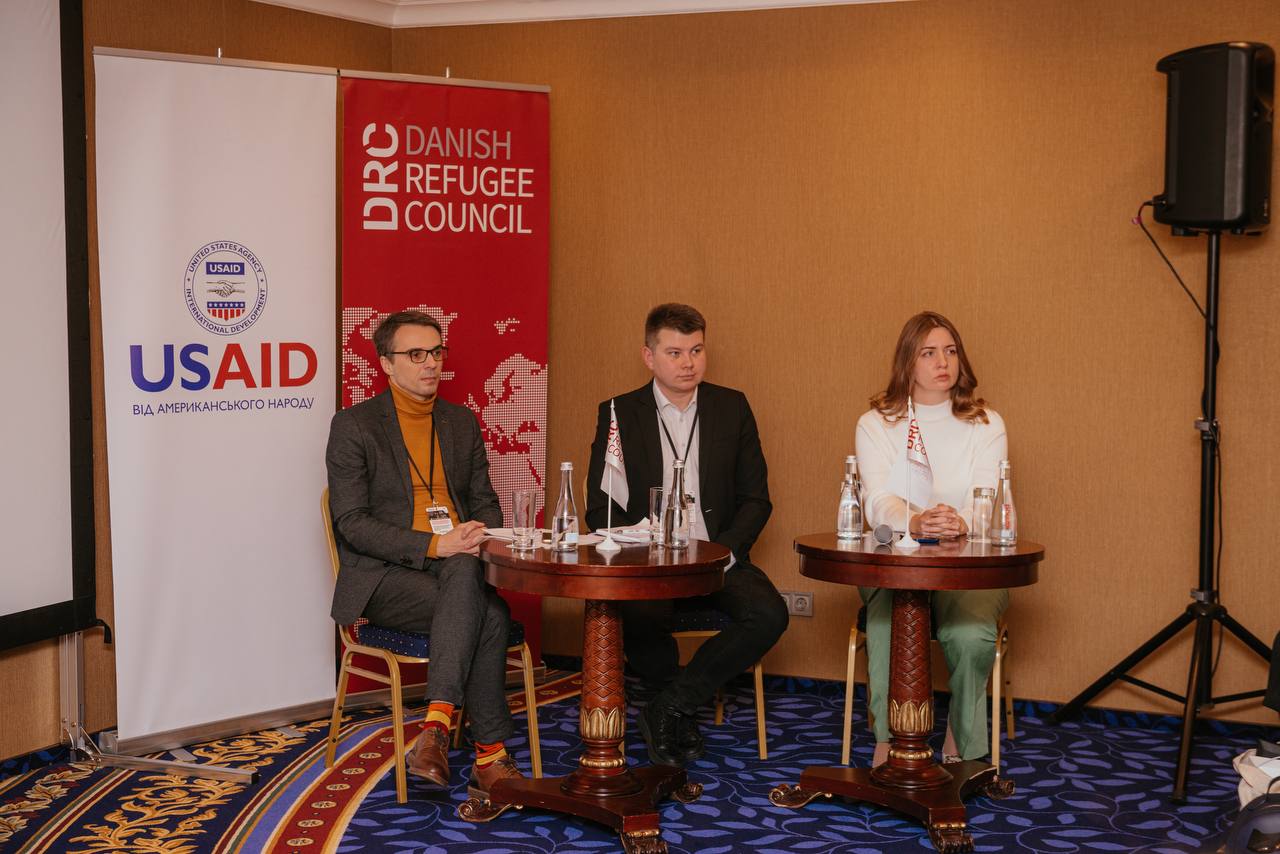Expert forum in Kyiv: the problem of compensation for legal users of damaged or destroyed housing
On 7 December 2024, the expert forum ‘Compensation for legal users (not owners) of damaged/destroyed housing: challenges and prospects’ was organized by the Danish Refugee Council (DRC). The event brought together leading Ukrainian and international experts, representatives of NGOs, and government agencies to discuss ways to address the urgent problem of compensation for people who legally resided in housing destroyed as a result of the war. Representatives of the Institute of Legislative Ideas, Andriy Klymosiuk, and Oksana Huziy, also participated in the discussion. They also discussed with representatives of the Kyiv office of the Register of Damage for Ukraine (RD4U) the prospects for filing claims for compensation for this category of persons.
According to the Kyiv School of Economics, more than 250,000 residential buildings were damaged or destroyed in Ukraine as of January 2024. Direct losses are estimated at USD 58.94 billion. However, current Ukrainian legislation does not provide for the participation of non-owners who legally reside in damaged housing in compensation programs. This category includes social housing residents, tenants, heirs who have not completed the inheritance procedure, and others.
The speaker of one of the panels was Andriy Klymosiuk, Project Manager of the ILI. He described specific cases where actual homeowners were deprived of the opportunity to receive compensation due to the loss of documents or non-compliance with legal procedures.

"We have tens of thousands of cases where people have lived in their homes for years, but due to the lack of documents, they cannot receive assistance. This is especially true in rural areas, where houses were often bought without proper registration or inherited without acceptance of the inheritance. In many cases, such documents have been lost, damaged, or destroyed as a result of hostilities, hasty evacuation of owners, or other war-related reasons," the expert said.
The legislation limits the right to compensation to homeowners only, leaving out a significant number of victims. The lack of registration of people who legally used damaged or destroyed housing makes it impossible for them to participate in compensation programs. The lack of access to notary or administrative services in the regions affected by the hostilities makes it difficult to recover documents to confirm property rights. Thousands of Ukrainians have lost documents that could confirm their right to housing, some did not follow legal procedures at all and bought housing for cash, or continued to live in inherited property without properly registering the inheritance.
International experience was also discussed, including the Bosnian model of compensation. In Bosnia and Herzegovina, there was a presumption that the applicant did not own the property, which allowed them to file applications even in the absence of documents. The Compensation Commission was empowered to collect evidence on its own, creating mobile teams to assist applicants. To facilitate the application process, the Commission for Displaced Persons and Refugees opened 23 regional offices in the country and 12 offices abroad. A system of direct data collection was used through mobile teams that traveled around the country and helped to fill out applications.
‘The effectiveness of the implemented mechanism is confirmed by concrete results: by the end of the mandate of the Commission for Displaced Persons and Refugees in December 2003, about 311,000 final decisions had been made, of which 80% were successfully implemented, which contributed to the restitution of property to approximately 1 million displaced persons,’ said Andriy Klymosiuk.
Taking into account international experience in developing compensation mechanisms, Ukraine should establish an independent body to help applicants collect documents and confirm their right to compensation. Important steps should also be taken to develop a simplified procedure for submitting applications to the state register of damages with the involvement of NGOs and international partners.
Experts stressed that addressing the issue of compensation for the legitimate users of damaged housing is critical to ensuring social justice and compliance with international human rights standards. The participants also stressed the need to adopt amendments to the legislation as soon as possible to ensure that every victim has real access to compensation.
"Our goal is to create conditions so that no one is left behind. This is not only about restoring housing but also about justice and support for people who have lost everything because of the war," summed up Andriy Klymosiuk.




